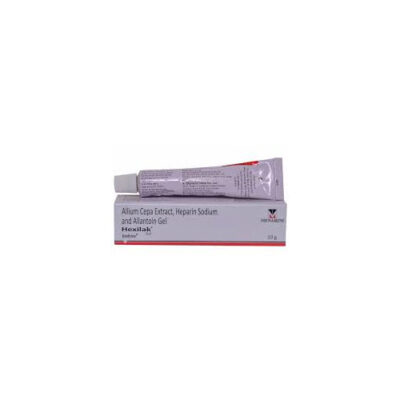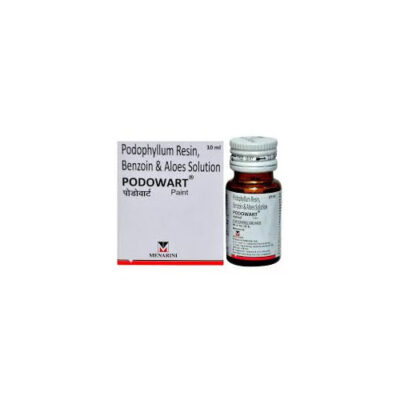Description
CILAPAM LS TABLETcontains a combination of Clonazepam and Escitalopram which belongs to the group of medicines called Antidepressants. It is indicated for the management of comorbid depression and anxiety disorder.
Comorbid depression and anxiety disorder is condition in which the person has anxiety and depression together at the same time. Symptoms are persistent feeling of sadness or loss of interest, changes in sleep, appetite, energy level, concentration or daily behavior, feeling nervous or restless, fast heartrate, heavy breathing.
Avoid consumption of alcohol during management with CILAPAM LS TABLET. CILAPAM LS TABLET is not recommended to use in patients having liver or heart diseases, acute narrow-angle glaucoma (increased pressure within the eye) or if you are taking MAO inhibitors such as isocarboxazid or moclobemide (to manage depression), selegiline (used to manage Parkinson’s disease) or linezolid (an antibiotic).
Before taking CILAPAM LS TABLET inform your doctor if you have kidney, liver or, lung diseases, epilepsy, low levels of sodium, tendency of bleeding and bruising and diabetes. Patients should be monitored for signs of suicidal ideation and behaviors and advised to seek immediate medical advice if any such signs occur.
CILAPAM LS TABLET should be used with caution in pregnant and breastfeeding women only if clearly advised by the doctor. Consult your doctor before taking it. CILAPAM LS TABLET is not recommended for use in children and adolescents (18 years and below).CILAPAM LS TABLET should be used with caution in elderly patients (above 65 years of age).
The most common side effects of taking CILAPAM LS TABLET are nausea, headache, diarrhea, constipation, dry mouth, increased sweating, increased or decreased appetite, etc. Consult your doctor if any of the symptoms worsen or persists.
USES OF CILAPAM LS TABLET
- Manage comorbid depression and anxiety disorder
HOW CILAPAM LS TABLET WORKS
CILAPAM LS TABLET is a combination of Clonazepam and Escitalopram, where Clonazepam is a benzodiazepine that increases the action of gamma-aminobutyric acid (GABA), a chemical messenger that suppresses the abnormal activity of the nerve cells in the brain. Escitalopram is a selective serotonin reuptake inhibitor (SSRI) that increases the levels of serotonin, a chemical messenger that improves mood.
DIRECTIONS FOR USE
Take CILAPAM LS TABLET as advised by your physician. Swallow the medicine with water. Do not crush or chew the medication. Your physician will decide the correct dose and duration of CILAPAM LS TABLET for you depending on your age, body weight and disease condition.
SIDE EFFECTS OF CILAPAM LS TABLET
COMMON
- nausea
- headache
- blocked runny nose
- increased or decreased appetite
- restlessness, anxiety, abnormal dreams, difficulties falling asleep, feeling sleepy, dizziness, tremors, yawning, prickling of the skin
- diarrhea, constipation
- vomiting
- dry mouth
- increased sweating
- pain in muscles and joints
- sexual problems (problems with erection, delayed ejaculation, decreased sexual drive and women may experience difficulties achieving orgasm)
- fatigue, fever
- increased weight
UNCOMMON
- rash and itching
- grinding teeth, agitation, nervousness, panic attacks, confused state
- disturbed sleep
- taste disturbance
- fainting
- enlarged pupils, visual disturbance
- ringing in the ears
- hair loss
- menstrual problems (excessive bleeding or irregular menstrual period)
- vaginal bleeding
- decreased weight
- fast heartbeat
- swelling of the arms or legs
- nosebleeds
RARE
- aggression, depersonalization, hallucination
- slow heartbeat
Stop taking CILAPAM LS TABLET and contact your doctor immediately if you experience any of the following side effects:
- thoughts of killing or harming yourself
- allergic reactions (symptoms include skin rash, flaking skin, boils, swelling of the face, sore lips and mouth, fever, sudden wheezing, fluttering or tightness in the chest or collapse)
- signs of heart-related problems (breathlessness, swelling of the ankles, cough, tiredness and a racing heart, chest pain which may spread to neck and shoulders or left arm)
- change in behavior (aggressiveness, irritability, excitement, agitation, nervousness, hostile, anxiousness, sleeping problems, nightmares or vivid dreams)
- mental problems (like seeing or hearing things that are not there (hallucinations), believing in things that are not real (delusions) or problems with speech)
- seizures
- unusual bleeding (including gastrointestinal bleeding)
- serotonin syndrome (signs include high fever, agitation, confusion, trembling and abrupt contractions of muscles)
- liver problems (like hepatitis signs include yellowing of the skin or whitish of the eye)
- difficulty in urination
HOW TO MANAGE SIDE EFFECTS
Nausea:
Take CILAPAM LS TABLET with or after meals. Stick to simple meals upon taking this medicine. Avoid eating rich or spicy food. Do not take any medication for nausea without your doctor’s consultation. Ask for your doctor’s advice if the nausea doesn’t improve.
Vomiting:
Get adequate rest. Drink lots of fluids, especially water. Have small sips if you feel sick. Do not take any medicine for vomiting without your doctor’s consultation. Contact your doctor if vomiting does not go or worsen.
Dizziness:
Lie or sit down especially when you feel dizzy. If you’re feeling a severe episode of spinning(vertigo), lie in a dark and quiet place with your eyes closed. Try to avoid vehicle driving. Discuss with your doctor if the dizziness worsens.
Dry mouth:
A dry mouth can be managed by chewing sugar-free gum or sucking on sugar-free hard candies to stimulate the flow of saliva. Sip water at regular intervals of time. Do not use mouthwashes having alcohol because they can be drying. Consult your physician for advice if your dry mouth doesn’t improve.
Loss of appetite:
Eat when you are hungry. Eat a nutritious snack rich in calories and protein, such as dried fruit and nuts. If the symptom does not improve, consult your doctor.
Constipation:
Eat more fiber-rich foods like fresh fruits, vegetables and cereals and drink plenty of water. Exercise more regularly. If the symptom does not improve, consult your doctor.
Headache:
Try to take rest and don’t involve yourself in exertive activities. Rest in a quiet and dark room. Apply a pain-relieving balm on your forehead. Ask for your doctor’s advice if headache doesn’t improve.
Diarrhea:
Drink more fluids such as water or fruit juice to keep yourself hydrated. Do not consume any medicine on your own without your doctor’s consultation.






Reviews
There are no reviews yet.